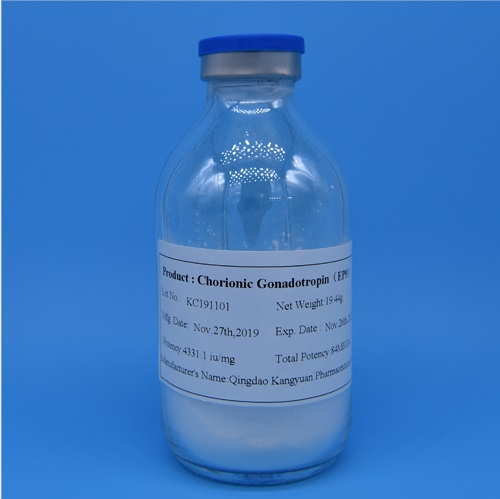Human Menopausal Gonadotropin (hMG) is a hormonal medication
widely used in the field of reproductive medicine. This article aims to provide
a comprehensive overview of hMG, highlighting its uses, benefits, and potential
considerations for individuals undergoing fertility treatments. Throughout the
discussion, three key themes will be explored: hMG's role in stimulating
ovulation, its application in assisted reproductive technology (ART), and
potential side effects.

Stimulating Ovulation: hMG plays a vital role in promoting ovulation in
women experiencing infertility or those undergoing fertility treatments. By
containing two key hormones, follicle-stimulating hormone (FSH) and luteinizing
hormone (LH), hMG helps stimulate the development of ovarian follicles, which
house the eggs. This stimulation of follicular growth and maturation is crucial
for successful ovulation and increases the chances of achieving pregnancy.
Assisted Reproductive Technology (ART): In the realm of assisted
reproductive technology, hMG has proven to be an invaluable tool. It is commonly
used in conjunction with other fertility treatments such as in vitro
fertilization (IVF) and intrauterine insemination (IUI). During an IVF cycle,
hMG is administered to stimulate the growth of multiple follicles, thus
increasing the chances of successful egg retrieval. In IUI, hMG can help
regulate ovulation, optimizing the timing of insemination. The versatility of
hMG in ART makes it a vital component of many fertility treatment protocols.
Potential Side Effects: Like any medication, hMG comes with potential side
effects that need to be considered. These may include ovarian hyperstimulation
syndrome (OHSS), which can range from mild discomfort to severe complications.
OHSS occurs when the ovaries respond excessively to hMG, resulting in enlarged
ovaries and potential fluid accumulation in the abdomen. Additionally, multiple
pregnancies, as a result of multiple follicular development, can increase the
risk of complications for both the mother and babies. Close monitoring and
individualized dosing protocols are essential to mitigate these risks and ensure
the safe and effective use of hMG.
Human Menopausal Gonadotropin plays a crucial role in
reproductive medicine, assisting in the stimulation of ovulation and supporting
various assisted reproductive technologies. By harnessing its potent effects on
follicular growth and maturation, hMG offers hope to individuals seeking
fertility treatments. However, it is essential to balance the benefits of hMG
with the potential side effects and risks associated with its use. Through
careful monitoring and individualized treatment plans, the optimal outcomes can
be achieved while ensuring the safety and well-being of patients undergoing
fertility treatments.